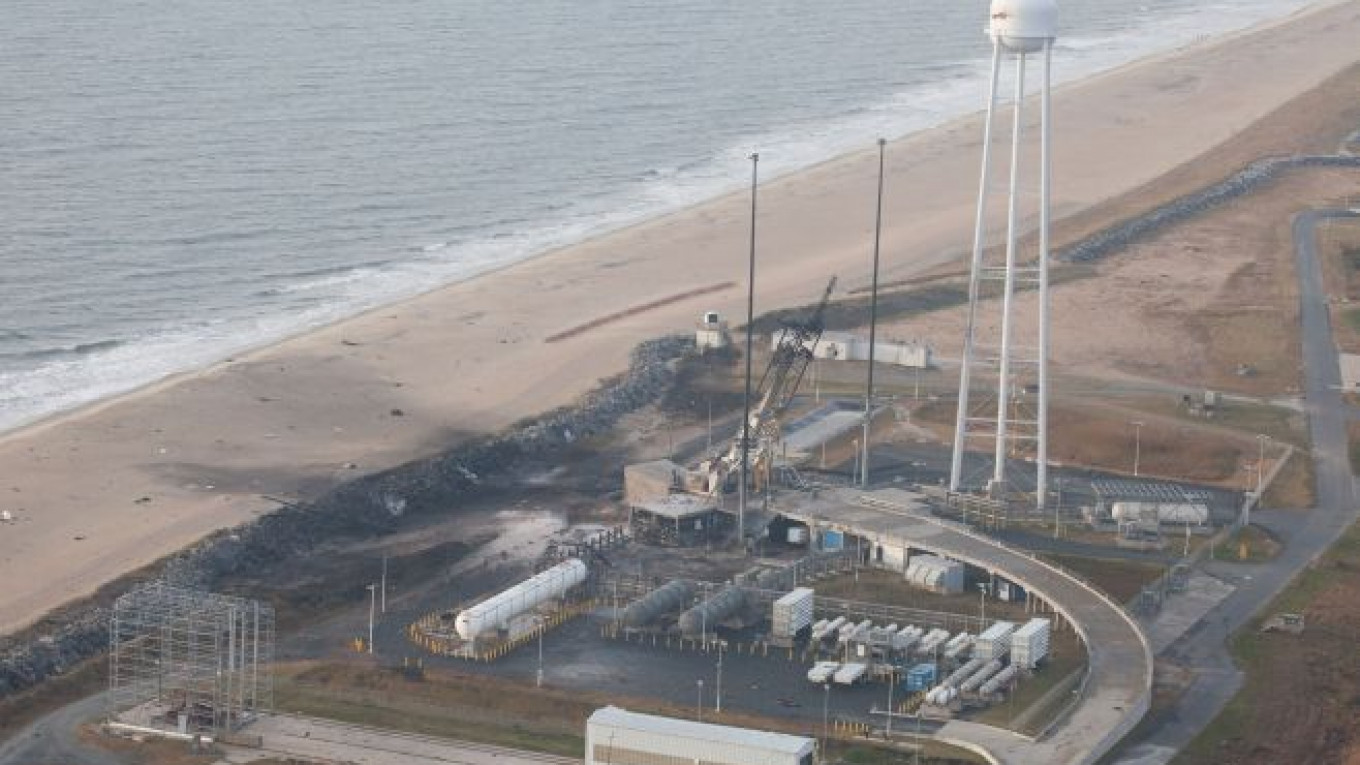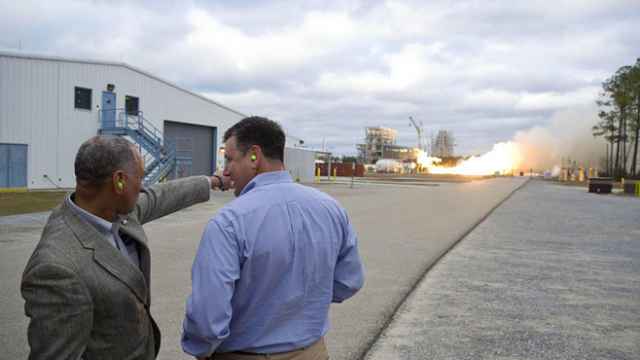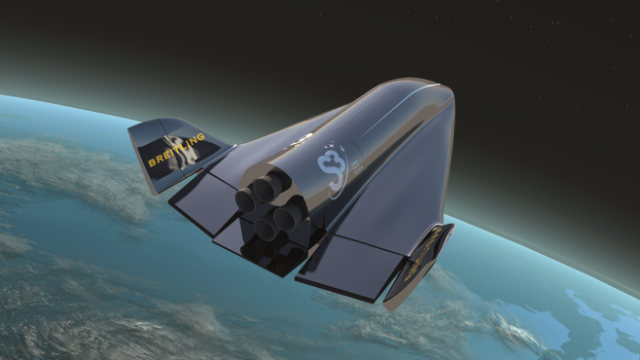A preliminary investigation into the cause of last week's U.S. Antares commercial rocket explosion has blamed the vehicle's 40-year-old Russian engine, perhaps forcing the rocket's builder, Orbital Sciences, to dump the Soviet-built engines for other models, the company said Wednesday.
"While the work of the [accident investigation board] continues, preliminary evidence and analysis conducted to date points to a probable turbopump-related failure in one of the two Aerojet Rocketdyne AJ26 stage one main engines," Orbital said, adding that "as a result, the use of these engines for the Antares vehicle likely will be discontinued."
The Aerojet engines are refurbished Soviet-era NK-33 engines built in the late 1960s and early 1970s for the Soviet Union's massive N1 moon rocket. When the N1 program was scrapped in 1974, the engines were put in storage for 20 years before Russia's Kuznetsov design bureau dumped them on the market in the 1990s following the collapse of communism.
The Russian engines, 40 years old by the time they were used, were the subject of early speculation as to the cause of the spectacular explosion at NASA's Wallops launch facility in Virginia last week.
The Antares rocket was intended to deliver supplies to the International Space Station (ISS) as part of its $1.9 billion resupply contract with NASA. Orbital Sciences is supposed to deliver supplies to ISS for NASA through 2016, and says it will continue to fulfill its obligations by launching its Cygnus resupply ship on its other rockets until Antares is proven ready to fly again.
Before Orbital can bring Antares back into service, repairs will need to be made to NASA's launch facility and the rocket will need a new engine, if the investigation concludes definitively that the refurbished NK-33 was at fault.
Although it is not yet clear what kind of engine Orbital may choose, unconfirmed reports in Russia's Izvestia tabloid said last week the U.S. commercial space firm could agree with another Russian rocket engine manufacturer — NPO Energomash — to buy RD-193 engines to power Antares.
NPO Energomash currently supplies another U.S. space firm, United Launch Alliance (ULA) — a joint venture between U.S. aerospace giants Boeing and Lockheed Martin — with its RD-180 engines to power the Atlas V rocket, a favorite launch vehicle of the U.S. Air Force and NASA.
Regardless of the accuracy of Izvestia's report, the loss of Orbital as a customer for the refurbished NK-33 engines would deal a heavy blow to Kuznetsov. The NK-33 is out of production but is seen as such a classic that Kuznetsov had recently been moving to restart production of the engines. How a decision by Orbital to dump the engines would impact these plans is not immediately clear.
Contact the author at [email protected]
A Message from The Moscow Times:
Dear readers,
We are facing unprecedented challenges. Russia's Prosecutor General's Office has designated The Moscow Times as an "undesirable" organization, criminalizing our work and putting our staff at risk of prosecution. This follows our earlier unjust labeling as a "foreign agent."
These actions are direct attempts to silence independent journalism in Russia. The authorities claim our work "discredits the decisions of the Russian leadership." We see things differently: we strive to provide accurate, unbiased reporting on Russia.
We, the journalists of The Moscow Times, refuse to be silenced. But to continue our work, we need your help.
Your support, no matter how small, makes a world of difference. If you can, please support us monthly starting from just $2. It's quick to set up, and every contribution makes a significant impact.
By supporting The Moscow Times, you're defending open, independent journalism in the face of repression. Thank you for standing with us.
Remind me later.






